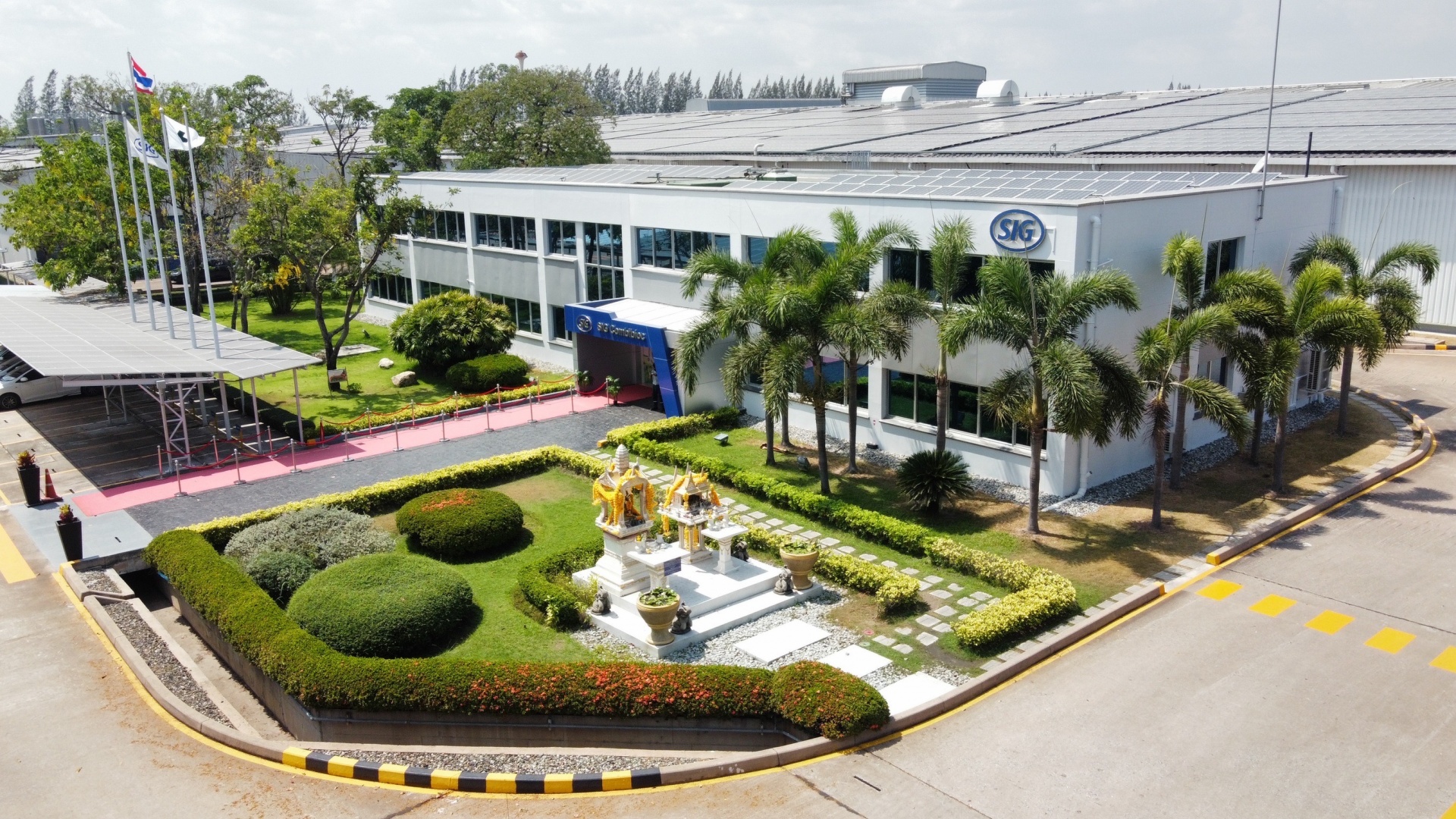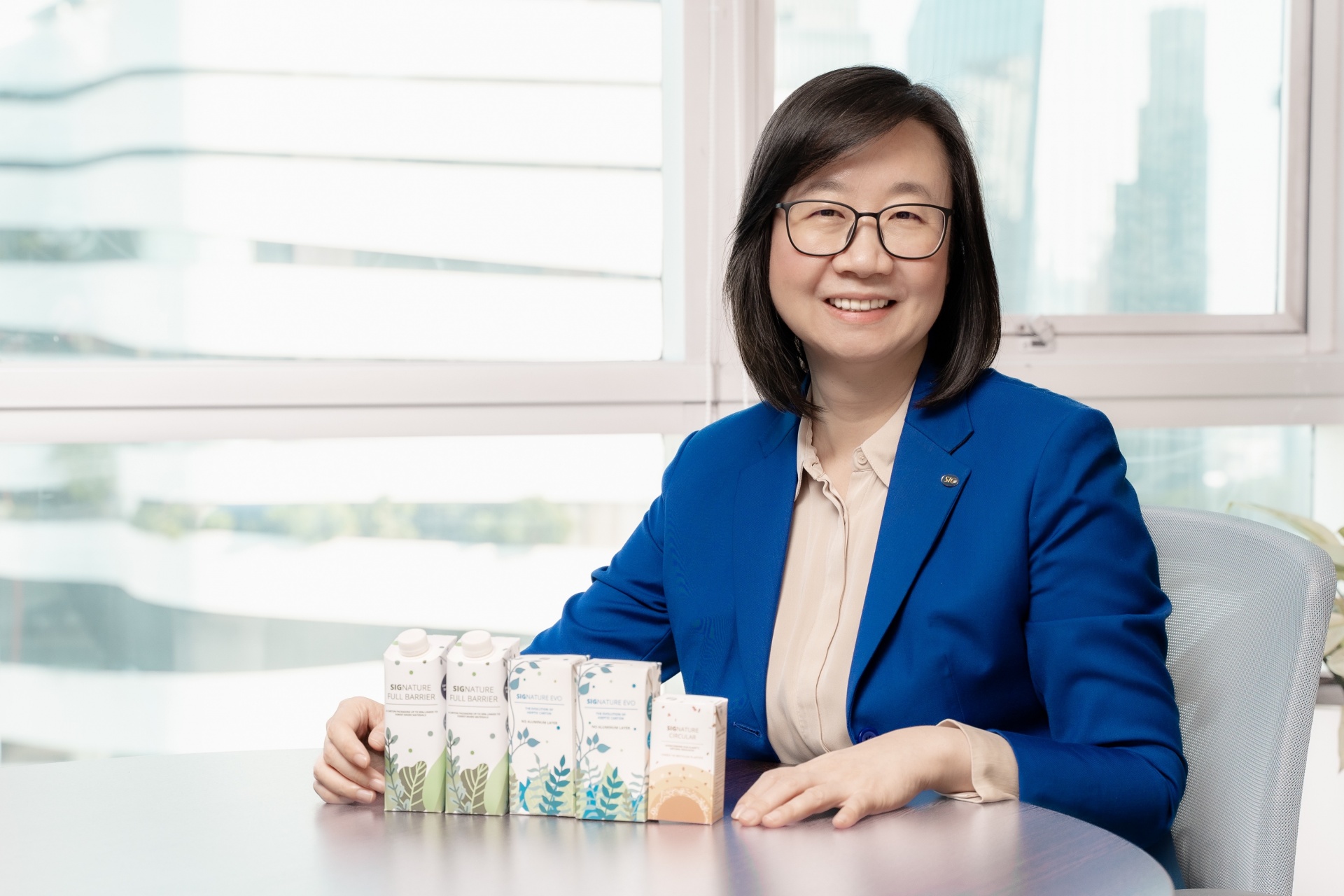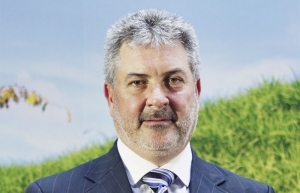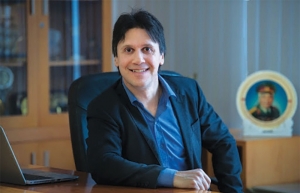Packaging provider SIG reinforces sustainability commitment in Asia
 |
| SIG's solar-powered factory, one of the biggest in the region, produces with 100 per cent renewable electricity |
As SIG has just celebrated its 25th anniversary of its packaging plant for aseptic carton packs in Thailand, could you share a significant milestone of your time in Southeast Asia?
Through our 25 years in Southeast Asia, the pursuit of excellence towards a greener future underpins everything that we do. Our motivation to design eco-friendly packaging across all product lines drives us to pioneer top-notch technology to our clients with adaptable solutions, and ultimately assist them in transforming their businesses for the better.
The SIG Rayong plant began operations in 1998 and spans across 109,600 sqm, supplying customers in Asia Pacific and South Asia, specifically in Southeast Asia, Australia, Japan, and India. The plant has the capacity to produce around 11 billion aseptic carton sleeves per year for brands such as Thai Denmark, Nestlé, FrieslandCampina, Indomilk, Ultrajaya, Parle Agro, and Amul. Some prominent Vietnamese dairy producers are also our long-standing customers, including Nutifood, Vinamilk, and TH True Milk.
One significant milestone recently would be the installation of the solar roof on the SIG production plant in 2018. Covering an area of 17,664 sqm, this solar project with 12,350 panels can produce up to 5,675 megawatt hours of electricity per year, which in turn has reduced CO2 emissions by 12,871 tonnes since July 2018.
 |
| Angela Lu, president and general manager Asia Pacific South at SIG |
As Vietnam and other Southeast Asian countries are striving to achieve net-zero by 2050, how will SIG contribute?
We have formally committed to achieving net-zero greenhouse gas emissions by 2050 and set stretching targets to help us get there. We maintained carbon-neutral production for our aseptic carton packs with 100 per cent renewable electricity and certified offsets for all non-renewable energy. Furthermore, we also invested in more on-site solar installations and power purchase agreements that support further investment in renewable energy as part of the global energy mix.
In addition, we are committed to reducing our carbon emissions to the levels required by science to support a 1.5 degrees celsius global warming pathway, which involves hitting net-zero by 2050 at the latest. So, by 2030, we will reduce our operational emissions by 60 per cent from a 2016 baseline, and diminish our value chain plus operational emissions by 25 per cent per litre of food packed from a 2016 baseline.
We are also committed to removing more greenhouse gas emissions than we emit by 2030, whilst continuing to reduce our overall emissions.
However, sustainability is nothing new at SIG. We have always created packaging that delivers safe, affordable, shelf-stable nutrients to people without access to refrigeration – with the smallest carbon footprint compared to other types of packaging.
And for many years we have sought ways to limit our impact. In 2010, we were the first in our industry to launch an aseptic carton pack without an aluminium layer, with a 27 per cent smaller carbon footprint than SIG’s standard packaging material. We went even further in 2017 with the launch of a carton pack which has a 58 per cent smaller carbon footprint than SIG’s standard packaging material and is the world’s first aseptic pack 100 per cent linked to forest-based renewable material.
The further we have travelled, the more ambitious we have become. Now, the path ahead of us stretches out into a vastly more sustainable future. We’re leading the way towards a fully regenerative packaging system, with ambitious targets that put us well ahead of the rest of the industry.
We have developed a series of work streams to support progress on our path to net-zero – including a strong alignment with other focus areas, such as sustainable innovation and supply chain, that support our Climate+ targets.
What are your plans in Asia? How do you assess the role of APAC in SIG’s development agenda?
As sustainability efforts are increasingly becoming a focus, with many end-user segments in the consumer spotlight. The Asian Pacific plastic packaging market is driven by the expansion of the food and beverage, and pharma industries. According to the Market Data Forecast, the Asia Pacific plastic packaging market is estimated to rise at a current compound annual growth rate of 4.5 per cent in 2023-2028.
In the past, revenue from APAC accounted for around 30 per cent of SIG’s total revenue, and this figure is becoming more prevalent compared to other regions. In the future, we expect to see our APAC operations would contribute the most to our group’s business performance. We are proud to say that APAC would play the critical role in our strategic expansion plan, for now and for good.
Regarding our future plan, we are rolling our strategic investment in a new plant in India – a move to enhance SIG’s footprint in the country, which is one of our fastest-growing market.
With the upcoming SIG packaging plant in Ahmedabad, India, expected to start commercial production at the end of 2024 and supply for our customers in South Asia, the Rayong plant in Thailand will have the opportunity to produce more of sustainability-driven packaging solutions such as the aluminium layer-free aseptic cartons for our APAC customers.
As a Swiss corporation and a publicly listed company, how would assess the current volatile market condition, particularly the UBS’ deal to take over its troubled rival Credit Suisse, and its impact on SIG?
According to Global Market Insights Inc., the Asia Pacific food packaging market is set to cross $170 billion by 2025. A survey in 2022 by McKinsey also illustrated that 75 per cent of companies across the globe have already made sustainable-packaging commitments.
Sustainability is now flying high on the packaging value chain, with stronger consumer awareness and legislation in place. These positive figures and sentiment indicate a very promising future for our industry.
Many people also indicate that the packaging industry is "recession-proof," despite escalating geopolitical tension, or macroeconomic challenges, as consumer demand for essential goods such as dairy products or juice is still huge. Packaging is an important enabler on daily lives of consumers. And I think that’s the beauty of this industry – always being resilient amid the storm.
| Tran Tieu Tram, marketing director, Nutifood SIG is our trusted, long-standing partner for our packaging solutions, which fulfill the most stringent standards of sustainability. Nutifood products are not only limited to Vietnam’s market, but we are also actively expanding our presence in international markets, such as the US and the EU. Some of the most developed countries and regions are taking significant steps to introduce regulations to drive sustainability in packaging. SIG has successfully cultivated an image for its packaging solutions as the golden standards of freshness, environment-friendliness, and strict hygiene requirements. That’s why we are 100 per cent confident in Nutifood’s products using SIG’s packages. |
 | TMC goes above and beyond the sustainability commitment in Vietnam New Zealand-headquartered TMC Ltd. is embracing circularity, sustainability, and digitalisation strategies to deliver exclusive high-performance fabrics for global brands by leading the charge in utilising innovative materials. Andy Wynne, CEO of TMC, discussed the country’s vibrant business climate with VIR’s Luu Huong and how the firm is capitalising on Vietnam’s free trade agreements with some of the largest economies in the world. |
 | Ericsson’s commitment to supporting the digital transformation of Vietnam Ericsson has been contributing its technology leadership to digital transformation in Vietnam over the past 30 years. Denis Brunetti, president of Ericsson in Vietnam, Myanmar, Cambodia, and Laos, talked to VIR’s Bich Thuy about his own journey and the plans ahead for the company in Vietnam. |
What the stars mean:
★ Poor ★ ★ Promising ★★★ Good ★★★★ Very good ★★★★★ Exceptional
 Tag:
Tag:
Related Contents
Latest News
More News
- $100 million initiative launched to protect forests and boost rural incomes (January 30, 2026 | 15:18)
- Trung Nam-Sideros River consortium wins bid for LNG venture (January 30, 2026 | 11:16)
- Vietnam moves towards market-based fuel management with E10 rollout (January 30, 2026 | 11:10)
- Envision Energy, REE Group partner on 128MW wind projects (January 30, 2026 | 10:58)
- Vingroup consults on carbon credits for electric vehicle charging network (January 28, 2026 | 11:04)
- Bac Ai Pumped Storage Hydropower Plant to enter peak construction phase (January 27, 2026 | 08:00)
- ASEAN could scale up sustainable aviation fuel by 2050 (January 24, 2026 | 10:19)
- 64,000 hectares of sea allocated for offshore wind surveys (January 22, 2026 | 20:23)
- EVN secures financing for Quang Trach II LNG power plant (January 17, 2026 | 15:55)
- PC1 teams up with DENZAI on regional wind projects (January 16, 2026 | 21:18)






















 Mobile Version
Mobile Version